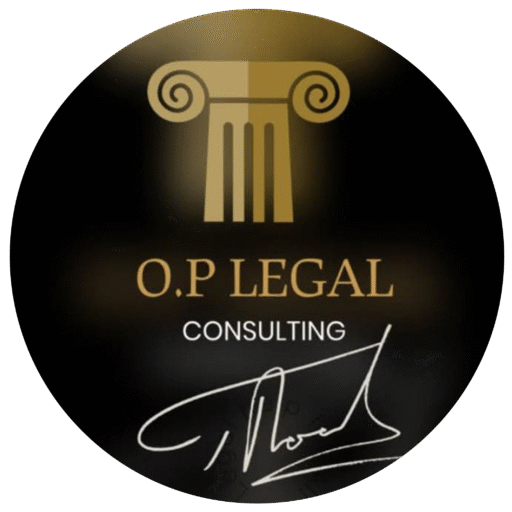How to Spot Potential Litigation Triggers in Your Business Operations
October 2, 2025Why Litigation Risk Assessment is the Best Dispute Resolution Strategy
October 4, 2025Smart contract auditing is a critical process in the blockchain and cryptocurrency industry, ensuring that code governing digital agreements operates securely and as intended. However, auditors face significant litigation risks if errors, oversights, or vulnerabilities in audited smart contracts lead to financial losses or legal disputes. This article explores the key litigation risks associated with smart contract auditing and offers practical guidance to mitigate them, written in a professional yet accessible tone for businesses and individuals navigating this complex field.
Understanding Smart Contract Auditing
Smart contract auditing involves a thorough review of the code underlying automated, blockchain-based agreements to identify vulnerabilities, bugs, or inefficiencies. These contracts, often deployed on platforms like Ethereum, execute transactions automatically when predefined conditions are met. Auditors are tasked with ensuring the code is secure, compliant with intended functionality, and free from exploitable flaws. However, the high-stakes nature of smart contracts—often involving significant financial assets—means that any auditing oversight can lead to costly disputes, making litigation risk a pressing concern for auditors and firms.
Potential Sources of Litigation
Litigation risks in smart contract auditing often arise from errors or omissions during the audit process. If a smart contract fails due to an undetected vulnerability, affected parties may suffer financial losses and seek to hold auditors liable for negligence or breach of contract. For example, a missed coding flaw could allow hackers to exploit the contract, draining funds or disrupting operations. Additionally, unclear audit scopes, miscommunication with clients, or failure to address specific risks (like reentrancy attacks) can escalate into legal claims, especially if the auditor promised a level of security that was not delivered.
Negligence and Professional Liability
Negligence claims are a primary litigation risk for smart contract auditors. To prove negligence, plaintiffs must demonstrate that the auditor failed to exercise reasonable care, directly causing financial harm. For instance, if an auditor overlooks a known vulnerability, such as those listed in the OWASP Smart Contract Top 10, they could be deemed negligent. Professional liability also extends to misrepresentation, where auditors overstate their expertise or the thoroughness of their audit. To reduce this risk, auditors must maintain rigorous standards, document their processes, and clearly define the limitations of their services in client agreements.
Contractual Disputes and Scope of Work
Many litigation risks stem from poorly defined contracts between auditors and clients. Ambiguities in the scope of work—such as whether the audit covers only code review or includes external dependencies like oracles—can lead to disputes if a smart contract fails. Clients may argue that the auditor was responsible for identifying issues that were outside the agreed-upon scope. To mitigate this, auditors should use clear, detailed contracts that outline the audit’s boundaries, methodologies, and limitations. Including disclaimers that audits do not guarantee absolute security can also help manage client expectations and reduce liability.
Regulatory and Compliance Risks
The regulatory landscape for blockchain and smart contracts is evolving, adding another layer of litigation risk. Auditors may face legal challenges if their work is deemed non-compliant with emerging regulations, such as those governing decentralized finance (DeFi) platforms. For example, failing to flag a smart contract’s non-compliance with anti-money laundering (AML) or know-your-customer (KYC) requirements could expose auditors to liability. Staying informed about jurisdictional regulations and incorporating compliance checks into audits can help auditors avoid legal pitfalls in this rapidly changing environment.
Mitigating Litigation Risks
To minimize litigation risks, smart contract auditors should adopt best practices and proactive measures. First, they should use standardized frameworks, such as the Smart Contract Security Alliance guidelines, to ensure comprehensive audits. Second, maintaining professional indemnity insurance can provide financial protection against claims. Third, auditors should document every step of their process, including tools used, vulnerabilities tested, and client communications, to demonstrate due diligence in case of disputes. Finally, engaging legal counsel to review contracts and audit reports can further safeguard against potential lawsuits.
Balancing Risk and Responsibility
Smart contract auditing is a high-demand field with significant litigation risks due to the financial and technical complexities involved. By understanding the sources of liability—such as negligence, contractual disputes, and regulatory non-compliance—auditors can take proactive steps to protect themselves. Clear contracts, thorough documentation, adherence to industry standards, and legal consultation are essential for reducing exposure to lawsuits.
As the blockchain industry grows, auditors must balance their technical expertise with robust risk management to navigate the legal challenges of this dynamic field confidently.

